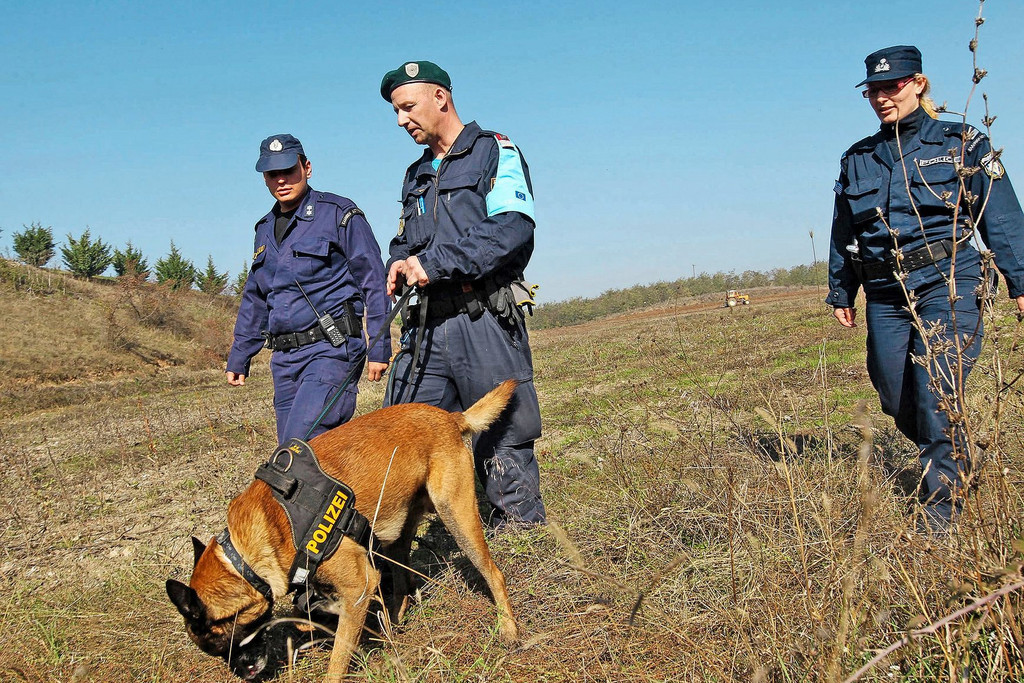Alain Berset remains tight-lipped. He does not give interviews. He did admittedly make himself available to discuss the new vaccination law voted on last year, just as he did for the Sbrinz cheese matured over a 24-month period because Berset is the patron of the autumn Tasting Week. However, the SP Federal Councillor is keeping his counsel on his major project, the comprehensive reform of the old-age pension system. His media spokesperson has been effusive in putting off all interview requests for months.
A tactical and strategic approach
“Alain Berset is lying in wait like a panther up a tree, ready to strike when the right moment comes along.” This is the view of a high-ranking official in the federal capital of Berne, who is full of respect for him. The scene is a Wednesday in November at three o’clock in the afternoon. Berne is set for a snowfall. Alain Berset enters the large room at the media centre of the Federal Palace and takes his place on the podium. His posture betrays the fact that he was once an elite athlete. He holds a five-centimetre-thick bundle of A4 sheets in the air. He smiles and says: “What we have to tackle here is far from straightforward.”
The old-age and survivors’ insurance (AHV) fund will have a shortfall of 8.6 billion Swiss francs in 2030. The financial investments of the pension funds are today already generating increasingly lower returns, and these need to cover the payment of ever longer pensions. Experts estimate that there will be a discrepancy of up to 110 billion Swiss francs by 2030.
It is the greatest Swiss pension reform since 1985, when occupational pensions (BVG) became mandatory. Switzerland has since struggled to restructure its old-age pension system. The last AHV revision was approved almost 20 years ago. It gradually increased the pension age for women from 62 to 64 years of age. All other attempts at amendments have failed. Most recently, the Swiss people rejected a pension age of 65 for women in 2004, and six years later they also voted against a reduction in the occupational pension conversion rate. Parliament then opposed a leaner version of the 11th AHV reform in the same year.
The minister responsible for social affairs is now venturing a major gamble. He intends to reform the AHV and BVG systems together. Berset announced his plans a year ago. He presented the details in November. The pension age for women is to be increased from 64 to 65 within six years. The conversion rate of the occupational pension scheme is to be reduced from 6.8% to 6% over a four-year period. It will not be possible to draw a pension from the pension fund until the age of 62. The same contribution rates will apply for both the self-employed and employees. The following principle will apply to the AHV fund: if its level falls below 70% of annual payouts, the contribution rate will automatically be increased and pensions will no longer be adjusted fully for inflation. And, in view of the fact that a shortfall of 7.2 billion Swiss francs will still exist in the AHV system from 2030 onwards, VAT is set to rise by up to two percent.
The electorate as allies
“Berset is attempting to create an exciting new chapter,” says the political scientist Claude Longchamp. “He has placed a large hat in the centre of the circle and everyone now has to put something in it.” The previous reforms failed because there were always clear winners and losers. Sometimes it was women, sometimes the elderly and sometimes the young. Strange alliances were formed, for example when 80% of the conservative Swiss People’s Party (SVP) voters were opposed to a reduction in the occupational pension conversion rate despite the fact that the trade unions had called the referendum. Now everyone is set to lose, and there will only be one winner – common sense.
“This may be asking too much of some politicians,” remarks Berset. “But the voters know how to deal with complex issues – they have proven this time and time again.” Everyone concerned is aware that the old-age pension system has to be adapted to demographic change. All the scenarios indicate that from 2020 onwards the profits generated by AHV funds will no longer be sufficient to finance the pensions. But can a socialist Federal Councillor successfully implement such an enormous project in a fundamentally conservative country? If you ask around in political circles in Berne, the opposite question is posed: Who is going to pull it off if not Berset? Admiration of the strategist is so great that journalists even interpret his defeats as victories.
Well acquainted with how politics works
Alain Berset’s career has progressed smoothly at great strides. He was a member of the Fribourg Constitutional Council aged 27, a Council of States member at 31 and a Federal Councillor at 39. This native of Fribourg belongs to a new generation of Swiss politicians. He is a professional, not a part-timer. After graduating in economics at the University of Neuchâtel, he worked at the Hamburg Institute of International Economics and then for the public authorities in Neuchâtel before founding his own consultancy firm. “A Federal Councillor has to know exactly how our political institutions work,” said Berset before his election to government. He possesses an advantage thanks to experience and networks and all at the tender age for a Federal Councillor of just 41.
The newcomer on the left seized his opportunity when the conservative Didier Burkhalter, as he said himself, no longer wanted to fight about “highly complex issues using extremely technical statutory articles” at the Federal Department of Home Affairs. A politician who pins his faith on the state, Berset gave his first major speech on the national Employers’ Day. It was written by a former advisor to the previous CEO of Novartis, Daniel Vasella. It was brilliant. “There is such a thing as society,” he said, countering Margaret Thatcher’s neoliberal maxim and appealing to the conscience of the business leaders.
Berset opened his game of chess with a move against his own grass roots on the left. Increasing the pension age, reducing the conversion rate and the automatic adjustment of pensions if the level of the AHV fund declines – these are concessions to the conservatives. It is just that they failed to recognise it. The employers’ federation voiced its criticism, arguing that the reform was not viable for the economy and that the threatened VAT increases should only be used as a last resort. The trade and crafts association (Gewerbeverband) condemned the measures as “a provocation”. It instead wants to make the pension age dependent on the level of the AHV fund. Pensioners would in this case only know the point from when they could draw a full pension two years in advance.
The common sense on which Berset is relying is holed up in political trenches. The minister responsible for social affairs still lacks the allies for his project. Even the trade unions and his own party are distancing themselves from him.
Time nevertheless favours the left-winger. The closer the year comes when the AHV system actually finds itself in financial difficulty, the more voters will be affected by possible measures and the more difficult it will become to put forward cost-saving proposals. Berset knows he is holding this trump card in his hand. When a journalist asked him whether he had a plan B, the Federal Councillor replied: “The previous reforms failed because there was always a plan B in the background.” In short, there is no alternative to this huge project.
Haste is dangerous
If it should nevertheless fail, the country would be left in a real mess and Alain Berset would face the same fate as many of his predecessors at the Federal Department of Home Affairs: big plans but no results. That prospect does not appear to unnerve him. After the press conference, the panther makes a few more statements in front of the microphones before withdrawing to his tree.
“Anyone who attempts to make rapid political headway in Switzerland will soon be thwarted. Greater progress is made by adopting a slower approach,” said Berset in one speech. But he also remarked: “Apprehensive citizens are distrustful of any reform.” A public debate is required on this issue, he added. It is hard to debate with a Federal Councillor who lurks up trees. It will soon become clear whether he will climb down now that the consultation process on his reform project has been completed.
Matthias Daum is an editor with the “Die Zeit” newspaper. His article was also published in “Die Zeit” no. 50/2013.





![[Translate to en:]](/fileadmin/_processed_/d/2/csm_Revue_202204_Huehnerfarm_SH-Reportage_3074_7901ca94df.jpg)






Comments